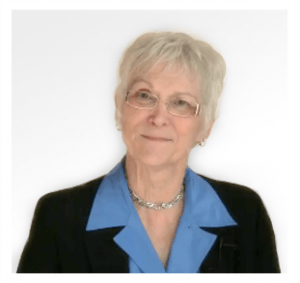We Can’t Wait!
Help create and sustain the sense of urgency to take action: What is your vitamin D level? The levels of your family? Your friends? Make sure everyone you know has this information and is acting on it. You, your family, and your community can be the start of putting an end to the negative health consequences of vitamin D deficiency!
GrassrootsHealth results (2016) showed greater than 71% lower cancer risk with vitamin D levels greater than or equal to 40 ng/ml (100 nmol/L). (Read Blog, View Paper)
GrassrootsHealth results (2017) showed greater than 60% lower risk of preterm birth with vitamin D levels greater than or equal to 40 ng/ml (100 nmol/L). (Read Blog, View Paper)
There is much published research that supports a clear link between higher levels of vitamin D and reduced risk of severe outcomes and death from COVID-19. (Read Summary Blog)
We don’t need more research – we need to act! How? What is your vitamin D level?
or send a check to
GrassrootsHealth
315 S. Coast Hwy 101
Suite U-87
Encinitas, CA 92024
Your donation today will help spread GrassrootsHealth’s reach – to spread the word about the benefits of vitamin D within recommended ranges of 40-60 ng/ml (100-150 nmol/L).
GrassrootsHealth is a non-profit research and public health organization specifically engaged in moving research into practice NOW! with the tools and methods we have developed — not taking 30 years after it’s been confirmed. Grant funding for nutrients, such as vitamin D, is rare. The money is not in nutrients, but drugs.
or send a check to
GrassrootsHealth
315 S. Coast Hwy 101
Suite U-87
Encinitas, CA 92024
A message from Carole Baggerly, Director, and Founder, GrassrootsHealth
 At a meeting of the National Cancer Institute in March 2007, I listened to dozens of vitamin D researchers present information about their cancer studies. Some with mice, some with people, some positive, some with a null effect. As the meeting was in its closing, a panel of researchers was on the stage. Dr. John Milner, the leader of the conference, asked the panel, “Where do we go from here?” I was soooo excited! I had just had breast cancer treatment, had learned something about vitamin D, and I saw its potential for helping prevent cancer.
At a meeting of the National Cancer Institute in March 2007, I listened to dozens of vitamin D researchers present information about their cancer studies. Some with mice, some with people, some positive, some with a null effect. As the meeting was in its closing, a panel of researchers was on the stage. Dr. John Milner, the leader of the conference, asked the panel, “Where do we go from here?” I was soooo excited! I had just had breast cancer treatment, had learned something about vitamin D, and I saw its potential for helping prevent cancer.
The answer from the panel: “We need more research.”
I was aghast. My heart beating wildly, I stood up and asked the question that created GrassrootsHealth– “Where is your sense of urgency?” and, sat down. Very shortly, the conference was over. Then, the life-changing event for me: there was a line of scientists waiting to talk to me. Why? They wanted to know “How can you help me get the word out?”
My answer: “I don’t know.” In order to know what to do to help spread a message, there needs to be some sort of definition of what’s required. My husband and fellow researcher, Leo Baggerly, and I then traveled the US and Canada for 6 months in our motorhome to meet with the key researchers and ask “What’s the message?” The Scientists’ Call to D*action was born. The key message then was about the serum level (NOT the dosage)–get it to 40-60 ng/ml (100-150 nmol/L). Their message hasn’t changed in 10 years. The serum level is the biologically relevant measure. The range hasn’t changed in part because no studies have had significant numbers of people in higher levels.
We can’t wait! We need prevention, NOW!
When we use the IOM’s recommended level of 20 ng/ml, and go to 40 ng/ml, we see a 71% lower rate of all non-skin cancer.
There is more research out there – many have reductions between 50-80%.
It’s time. We don’t need more research for this purpose — we need strong, determined people to take action. The data shows a clear reduction, no matter which endpoints you choose.
The process of prevention with vitamin D is extremely simple: test your vitamin D serum level, supplement to get to at least 40 ng/ml. It’s demonstrably safe (also by published studies), inexpensive and available.
What is the impact of starting today?
According to the American Cancer Society, approximately 1.7 million people will be newly diagnosed with cancer in 2017.
If we use our 71% reduction number, this would mean that 1.2 million people could have been saved the traumatic experience of diagnosis, treatment, and maybe death.
1.2 million! people saved from breast, colon, and other cancers!
Now, we recognize that this doesn’t happen overnight, it is important to maintain vitamin D levels above 40 ng/ml for multiple years to attain the best results and, maybe even above 60 ng/ml (150 nmol/L) for cancer – but we have to start today.
We can’t wait!
Help create and sustain the sense of urgency to take action: What is your vitamin D level? The levels of your family? Your friends? Make sure everyone you know has this information and is acting on it. You, your family, and your community can be the start of putting an end to the negative health consequences of vitamin D deficiency!
Onwards!
or send a check to
GrassrootsHealth
315 S. Coast Hwy 101
Suite U-87
Encinitas, CA 92024
